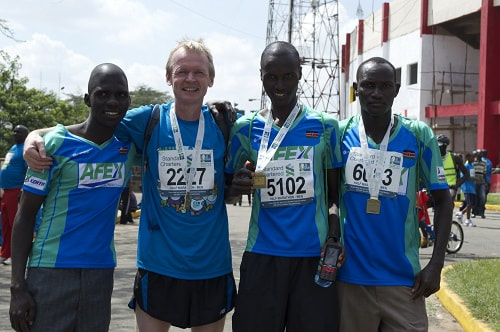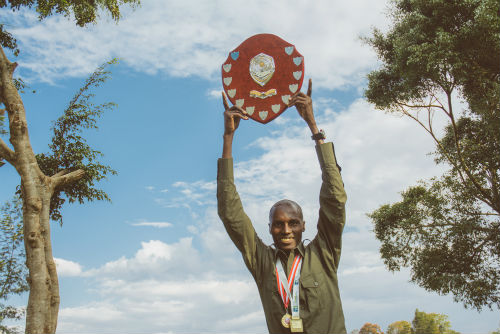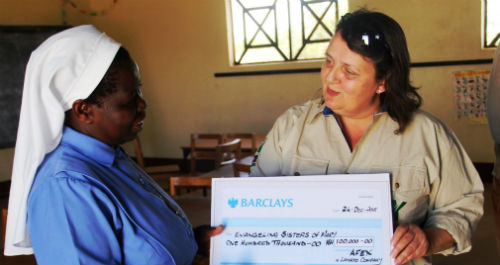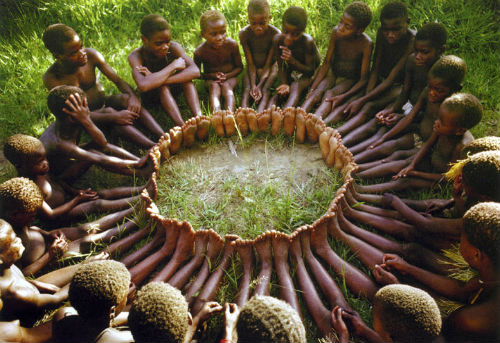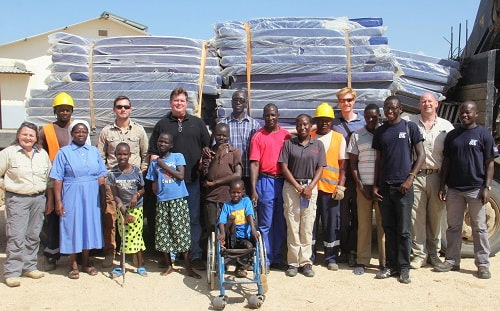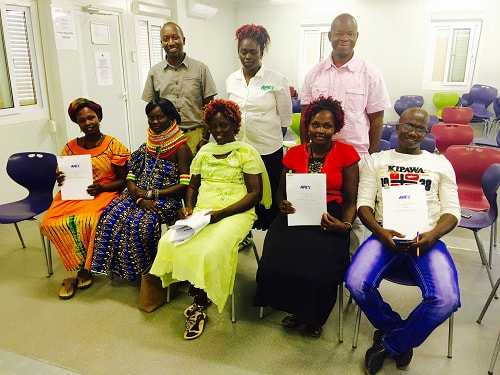|
Corporate Social Responsibility
Asiyejua utu si mtu: “One who does not know how to be humane is not human.” Providing camps and related camp services within Africa is a challenging process of planning and mobilizing the requisite staff, money, and resources within the agreed timeframe at the agreed price to meet the client’s requirements… before someone else does! With the reduction of remote site support activity in Afghanistan and Iraq, many foreign contractors (primarily security contractors) now seek to enter the large and promising African market. The African remote site support market is increasingly crowded. So what differentiates AFEX from our newly arrived competition? First of all, AFEX is an African company, with strong local management and staff. Our local East African knowledge and expertise is coupled with a Pan-African focus: AFEX is ready to work in any country within Africa where we can partner with our clients to deliver appropriate remote site solutions. AFEX always seeks to employ local nationals in each country of operation, and recruits with an eye to creating and maintaining strong teams in each country. AFEX is sensitive to the cultural and ethnic backgrounds of the communities we work within, and we actively solicit the involvement of village elders. For example, in a current project in Lamu, Kenya, AFEX is working with the client’s Community Relations Officer and a council of local Imams to promote good community relations, and vet potential staff drawn from the surrounding community. We identify ways and means of promoting community goodwill in order to work efficiently and safely within sensitive and / or post-conflict environments, partnering with local stakeholders to plan and promote ethical business, maximize the employment of local people, and introduce effective job-based training and mentoring programs for local staff. Such initiatives are not only ethical, in terms of recognizing our obligations to our host community, but prudent, in terms of encouraging the local community to be stakeholders and beneficiaries in the positive outcomes of a successful project. Secondly, the Swahili concept of “Utu” guides our approach to the much maligned and frankly confusing term “Corporate Social Responsibility” (CSR). Our approach to CSR goes beyond the opportunistic sponsorship of an occasional BBQ or Golf Day, or the handing out of AFEX branded T-shirts. We actively manage and mitigate the social and environmental impacts of our projects upon local communities, and we pay close attention to stakeholder relationships at every stage of a new project: at design stage; during mobilization; during construction and operation of the camp; and in every component of the supply chain required to produce a fully functioning and operational camp for our client. We also recognize that “Corporate Social Responsibility” carries a different set of associations in emerging economies than the meanings developed around CSR in the affluent West. African CSR projects should be designed as long-term, sustainable activities that benefit the local community, and not as quick “one off” gimmicks designed for Public Relations and Marketing purposes, or to appease vocal shareholders. As an East African company with strong local roots we cannot ignore the continuing high levels of poverty in the midst of plentiful natural resources and within a growing economy. Lack of appropriate employment opportunities in Africa, especially in remote areas, can lead to chronic employment insecurity, depressed wages, lack of access to maternity leave, and erosion of workers’ rights. Therefore, our projects always include a strong community element, and − depending on the local community’s needs − may include health education initiatives; assistance in setting up micro-enterprises (e.g. waste management in Turkana); skills development and training for the local workforce; and the creation of employment opportunities for specific target groups, such as the young and/or female workers. Our commitment to, and understanding of, appropriate CSR activities within our areas of operation strengthens our ties to the communities within which we work, and reflect positively on our clients, especially multi-national clients who inevitably have a high profile when working in Africa |
Current CSR Projects
|
Local Content Design in Procuring Goods & Services
AFEX forms partnerships with local entities to provide goods and services to our clients. Preference is given to the procurement of local goods and services, with the aim of boosting local supply chain development. Charitable Programs Initiatives AFEX supports the local community by raising money through social events centered in our camps and facilities. Cash raised through these events is then donated to local schools, hospitals, and community groups. Local Employment AFEX offers preferential employment opportunities to the local community within the communities in which we operate. Over the years, we have equipped generations of local workers with employable skills via training, skills transfer, and mentoring. Annual Standard Chartered Marathon Event Every year in October, AFEX sponsors local staff to participate in the national Standard Chartered marathon. |
Training and mentoring for local businesses
AFEX trains and mentors our local suppliers, providing them with skills to make their businesses grow. Environmental responsibility AFEX operates our camps in an environmentally responsible manner by reduction of plastic bottle use and controlling waste by segregation at source and recycling. We also implement and use water management techniques, use reusable materials whenever possible, and develop ‘green’ supply chains on behalf of our clients. Healthy Eating in AFEX Camps AFEX promotes Healthy Eating in our camps, using Healthy Eating signage and information displays such as the ‘Traffic Light System’ that presents food choices with nutritional information, helping to guide the diner in their selection of food options. Community Agribusiness Project AFEX engages the community in agribusiness by initiating a greenhouse project within the environs of our camp. Usually the greenhouse is linked to the local community school where the students learn valuable and sustainable skills, while providing our camp kitchen with fresh and clean products. |
|
|

